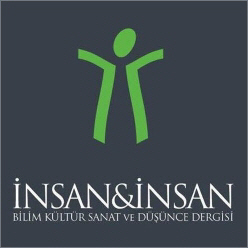Abstract: The social and political structure of the Ottoman Empire and the basic principles upon which the Turkish modernization was established are to be strictly scrutinized in order to understand the problems concerning the institutionalization of democracy in Turkey. In this article, which covers the period from the establishment of the new state to 1980s, it is argued that the implementation of the “modernization from above” has undermined the consolidation of democratic institutions. That the politics in Turkey has a narrow social base exaggerated the question of institutionalization and widened the controversy between the political/bureaucratic/ military elite and the people. The populist policies which were favored especially by Democrat Party and its heirs could not surmount the issue. On the contrary, reproducing patrimonial relations, it prevented the formation of a civil and political society which might be regarded as a constituting part of democracy.
Keywords: Democracy, political culture, civil society, modernization from above, Turkey
Yukarıdan Modernleşme Bağlamında Türkiye’de Demokratikleşme Çıkmazı
Özet: Türkiye’de demokrasinin kurumsallaşması ile ilgili sorunların anlaşılabilmesi için Osmanlı toplum ve siyasal yapısının dikkate alınması ve Türk modernleşmesinin üzerine kurulduğu temel ilkelerin sıkı şekilde gözden geçirilmesi gerekir. Yeni devletin kuruluşundan 1980’lere kadarki dönemi kapsayan bu makalede Türk modernleşmesinin “yukarıdan aşağıya” doğru uygulanışının demokrasinin kurumsallaşmasını ve sağlam dayanaklar üzerinde yükselmesini engellediği tartışılmıştır. Siyasetin toplumsallaşamamış olması, dolayısıyla dar bir çerçeve içinde kalması bu zaafın derinleşmesine ve siyasal, bürokratik ve askeri elitle halk arasındaki karşıtlığın kronikleşmesine yol açmıştır. Zaman zaman uygulanan popülist politikalar da bu sorunu aşamadığı gibi, patrimonyal ilişkileri yeniden üreterek demokrasinin gelişimi ile sıkı şekilde bağlantılı bulunan sivil ve siyasal bir toplumun oluşumunu engellemiştir.
Anahtar kelimeler: Demokrasi, siyasal kültür, sivil toplum, yukarıdan modernleşme, Türkiye
